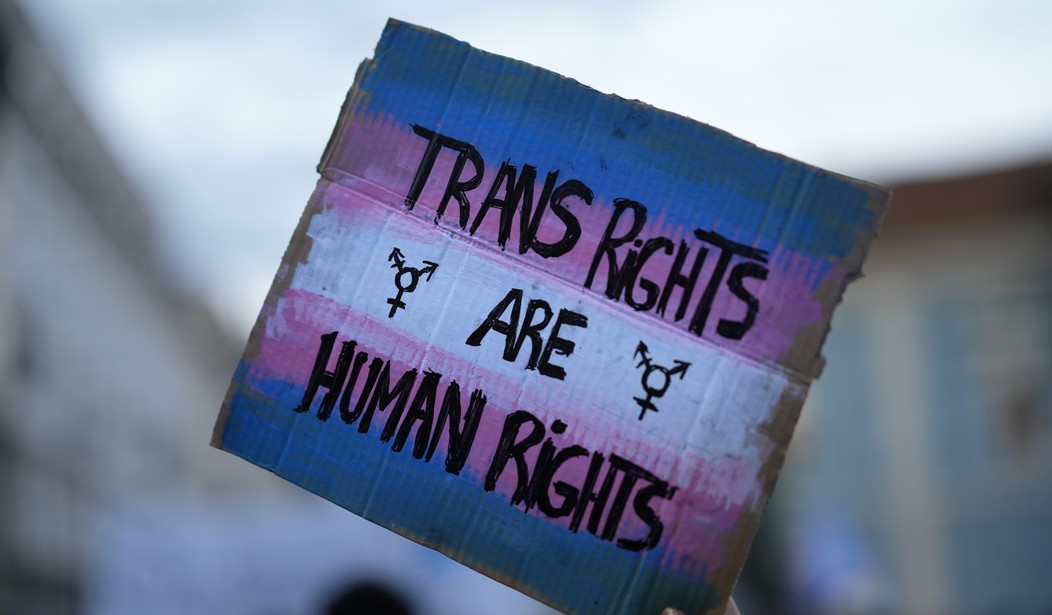An old friend of mine is a retired rugby player. He has a couple of those "Give Blood, Play Rugby" shirts, and the stories to back them up; lots of physical impacts, lots of bumps, bruises, scrapes, and now and then a bloodstained uniform. Rugby is, by all accounts, a rough and ready contact sport, not to be approached lightly.
Of course, that's why men's and women's teams are separate. In a sport such as this, all of the physical differences between men and women are magnified; any sane person would quickly affirm that mixing the two would be cruelly unfair to the women.
Except, in the Netherlands, where a "transgender male" player with the proportions of the Incredible Hulk was allowed to play on a girls' team - a member of which team, Elena King, has now suffered a major injury at the hands of the male player.
A young female rugby player who was left screaming in agony after a transgender rival tore apart her knee ligaments has accused sporting chiefs of letting her down.
Elena King, 20, suffered a torn ACL and MCL in January in the Netherlands after her biologically male opponent popped her left knee out of its socket with a rash challenge.
Now facing lifelong pain and six months of physiotherapy just to run again, she is asking why the Dutch Rugby Association allows transgender athletes to compete against women.
A torn anterior cruciate ligament (ACL) and medial collateral ligament (MCL) is serious. These are critical structures of the human knee, which is a complex apparatus that must not only work smoothly to allow walking, let alone running and competing in sports, but also must be in good enough condition to support the full weight of a person's body. A torn ACL and MCL may never recover fully. And this injury was worsened by the fact that a man, with the full strength of a man, caused the injury.
Serious injuries are part and parcel of the risk of playing rugby, but King insists the sheer strength she was exposed to was something that should not have been allowed in the women's game.
'I felt the strength being used against me: it’s nothing that I can explain because I don’t have that strength myself,' King told The Times.
'A cis woman could not have pulled my leg out of its socket… I heard a really loud pop. That’s when I started screaming. My leg was on fire.
Miss King is correct; that was something that never should have been allowed in the women's game. World Rugby, the international organization that governs the sport in Europe, doesn't allow "transgender women," or in other words, men, to compete on women's teams. But the Netherlands does.
Now Elena King faces months of recovery. Likely surgery, followed by months of recovery, rehabilitation, and physical therapy. Meanwhile, the male player, who was suspended briefly, is once more on the field, playing against women who, like Elena King, now run the risk of serious and life-changing injury.
See Also: Washington Schools Target of Federal Investigation Into Transgender Athletes
We've been through all of this before, but it bears repeating, and I will go on repeating it until some semblance of sanity returns to women's sports: Allowing "transgender women," or more accurately, men, to compete in women's sports is and always will be hideously unfair. Men, "gender identity" notwithstanding, have significant advantages over women in every physical marker: Speed, strength, and stamina. They have a greater proportion of fast-twitch muscle fibers, greater cardiac and pulmonary capacity, longer, denser, and stronger bones. These advantages are there from birth, and they are so great as to constitute a difference not in degree but in kind. These are facts.
That's why we separate men and women in sports. That's why we don't allow men on women's teams. And that's why Elena King never should have been horribly injured as she was, due to an idiotic policy in Dutch sports.















